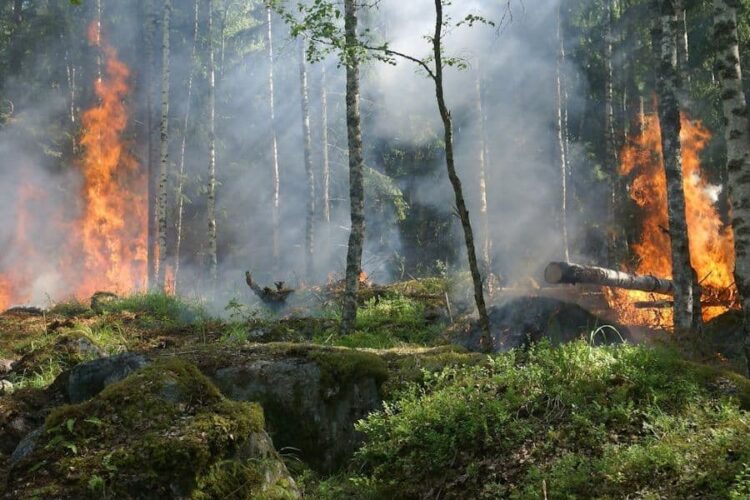Wildfires are devastating events that can leave a trail of destruction, impacting lives, property, and entire communities. For those affected, seeking compensation through a wildfire lawsuit may be a crucial step in recovering losses. However, these lawsuits can be complex and often require substantial evidence to support a claim. Consulting an experienced Orange County Airport Fire attorney can provide crucial guidance in navigating the legal landscape and gathering the necessary documentation. This guide will cover essential steps for gathering evidence if you’re considering a wildfire lawsuit, helping you build a strong case and improving your chances of receiving fair compensation.
Understand the Importance of Evidence in Wildfire Cases
In wildfire litigation, evidence plays a critical role in demonstrating the cause of the fire, proving who was responsible, and documenting the extent of your losses. Having a well-documented case strengthens your position and helps your attorney build a compelling argument for your claim. Evidence can show the following:
- The cause of the fire
- Who may be at fault (e.g., utility companies, landowners, or other parties)
- The extent of property, financial, and personal losses suffered
- Health or environmental impact on you, your family, or your community
Gathering evidence promptly and thoroughly is key, as it will help support your legal team’s efforts and maximize your compensation.
Document Property Damage Thoroughly
Property damage is often one of the largest areas of loss in a wildfire lawsuit. To document your property damage effectively, take the following steps:
- Photograph or Video the Damage: Capture detailed photos or videos of your property, including any structures, landscaping, vehicles, and personal belongings affected by the fire. Try to take images from multiple angles and include close-ups of severely damaged areas.
- Document Your Property’s Pre-Fire Condition: If possible, locate any recent photos, videos, or appraisals showing the pre-fire condition of your property. These documents can serve as a point of comparison to demonstrate the extent of the damage.
- Itemize Lost Personal Belongings: Make a list of all personal items lost or damaged in the fire, including their estimated value. Receipts, photos, or credit card statements can be valuable in supporting these claims.
- Consult Property Records and Valuations: Property valuations, tax assessments, and any recent appraisals provide documentation of your property’s worth before the fire.
Gather Medical Records and Document Health Effects
Wildfires can have serious health implications, especially from smoke inhalation and related respiratory issues. If you or your family have experienced health issues as a result of the wildfire, gather evidence such as:
- Medical Records: Collect all medical records related to wildfire-induced injuries, smoke exposure, or respiratory issues. This includes diagnoses, treatments, prescriptions, and any recommendations for ongoing care.
- Photographic Evidence of Injuries: If visible injuries occurred due to the fire, such as burns or rashes, photograph them and record the dates.
- Document Related Expenses: Keep all receipts for medical costs, including hospital visits, medication, or specialized treatments required due to the fire. Include any costs associated with mental health support or counseling for trauma caused by the event.
Collect Proof of Evacuation and Displacement Costs
Evacuating or temporarily relocating can create additional expenses and disruptions, which can be part of your claim. To support your case for these costs:
- Record Proof of Displacement: Keep documents like hotel receipts, food expenses, or temporary housing rental agreements. Note the dates of evacuation and displacement to demonstrate the duration and necessity of the relocation.
- Compile Lost Wages Information: If you missed work due to evacuation, medical recovery, or other wildfire-related impacts, gather pay stubs or employer letters to document lost income.
Investigate the Cause of the Fire
Determining the fire’s cause is essential, especially if the fire was due to another party’s negligence. This investigation can often be challenging, but some key sources include:
- Official Fire Reports: Contact local fire departments or governmental agencies (such as Cal Fire in California) for official fire reports. These reports may indicate the probable cause, location of origin, and whether negligence was suspected.
- Utility Company Records: In cases where utility equipment is suspected, records from the utility company or public reports on equipment maintenance, repair, or inspection may provide evidence.
- Eyewitness Statements: If neighbors or nearby individuals saw events leading up to or during the fire, gather their accounts. Witnesses can offer valuable insight into how the fire started or spread.
- Weather Records: Gather information on the weather conditions at the time of the fire, including temperature, wind speed, and humidity. These factors can influence the fire’s behavior and may support or challenge theories about its cause.
Keep Financial Records and Track Economic Losses
Economic losses extend beyond physical property damage and may include lost income, business interruption, or additional living expenses. Track these losses carefully:
- Document Business Interruption: If you own a business and had to close temporarily or permanently, document the financial impact. Include records of sales lost, operating expenses incurred, and employee wages paid during downtime.
- Track Additional Living Expenses: Calculate any extra costs incurred due to the fire, such as travel, meals, or household items purchased due to displacement.
- Keep Insurance Communication: Document all communications with your insurance company, including claim denials or payout amounts. This helps show any gaps in compensation you’re seeking through litigation.
Seek Environmental or Expert Assessments
Environmental and expert assessments can provide critical insights and evidence, especially in larger or more complex cases:
- Environmental Assessments: If the wildfire led to soil erosion, contamination, or other environmental impacts on your property, hiring an environmental expert can help document these changes.
- Structural Engineering Reports: For properties with structural damage, a structural engineer can assess the building’s condition, providing a professional evaluation of damage that can support your claim.
- Medical Expert Opinions: Medical experts may testify on the health impact of wildfire smoke and other hazards, further supporting your case for compensation related to health issues.
Work with an Attorney Experienced in Wildfire Cases
Gathering evidence for a wildfire lawsuit is complex and often requires expertise in both law and environmental science. Working with an experienced wildfire attorney can help you:
- Receive Guidance on Evidence Collection: An attorney can advise on what evidence is most critical to your case and how to obtain it effectively.
- Access Expert Resources: Legal teams often have connections with environmental experts, structural engineers, and health professionals who can provide assessments and testimony.
- Organize and Present Evidence: Your attorney will organize your evidence into a compelling case, increasing the likelihood of a successful lawsuit or settlement.
Final Thoughts
Building a wildfire lawsuit requires detailed and well-organized evidence. While the process can be overwhelming, knowing what evidence to gather and working closely with a qualified attorney can make all the difference in your case. Documenting losses, understanding the fire’s cause, and supporting claims with expert assessments will help ensure you’re well-prepared to seek compensation for the damages suffered. By following these steps, you can strengthen your position and potentially recover the costs of losses due to a wildfire disaster.










